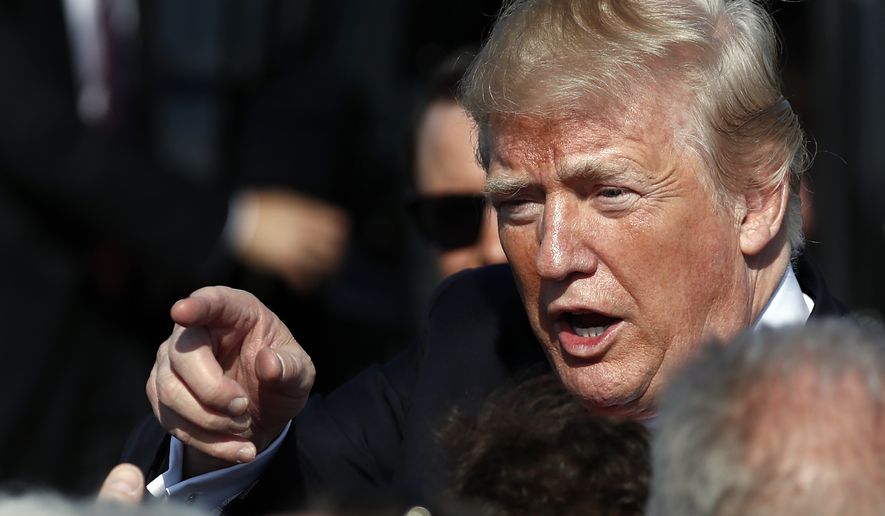A decidedly anti-Trump appeals court issued yet another ruling Friday blocking most of President Trump’s latest version of his travel ban, finding that the White House exceeded its powers.
The U.S. Court of Appeals for the 9th Circuit said would-be visitors from six majority-Muslim countries can still travel to the U.S. despite the policy, as long as they have a pre-existing relationship with an American person or entity.
It’s the latest ruling out of this particular appeals court to challenge the president’s claims. Earlier this week, the Supreme Court delivered a spanking in overturning another 9th Circuit ruling related to the president’s decision to end the Obama-era Deferred Action for Childhood Arrivals deportation amnesty program.
In this latest ruling the judges said Mr. Trump’s repeated efforts to impose a travel ban are causing “psychological harm and distress” among Muslims, who feel targeted.
“It cannot be in the public interest that a portion of this country be made to live in fear,” the judges said in an unsigned opinion.
All three of the judges — Richard Paez, Ronald M. Gould and Michael Hawkins — were appointed to the circuit court by President Clinton.
They did put their ruling on hold to give the Supreme Court a chance to review it. The justices earlier this month had said the travel policy could remain in place while the cases moved through the legal system, delivering a serious win for the president.
Mr. Trump repeatedly has tried to tailor his policy to meet his goal of “extreme vetting,” while also staying on the right side of the courts. But judges on both coasts have rejected his efforts each time.
In the latest policy, released in September, the president said a long review had identified eight countries that were either unable or unwilling to take the steps needed to share information or vet their own citizens to ensure they were safe for travel.
The countries are Chad, Iran, Libya, North Korea, Somalia, Syria, Venezuela and Yemen.
Under the president’s September proclamation, visitors from those countries were restricted from entering the U.S., to varying degrees. For Venezuela, the ban was on government officials, while for Syria the ban was total.
Immigrant-rights advocates challenged the policy, arguing Mr. Trump didn’t justify the ban, that it overstepped his powers and that it amounted to unconstitutional discrimination.
The judges agreed, saying the president, despite their chiding, still hasn’t provided a good enough rationale for why current screening isn’t good enough.
“The Proclamation makes no finding whatsoever that foreign nationals’ nationality alone renders entry of this broad class of individuals a heightened security risk to the United States,” the judges wrote.
The court said that while the president does deserve deference on national security decisions, it doesn’t mean courts can’t evaluate the decision-making.
The judges said there are plenty of people who could be hurt by the ban, including technology companies relying on foreign workers and even same-sex and other nontraditional relationship partners who cannot get married in their home countries. The court said they should be allowed to come to the U.S. notwithstanding the president’s policy.
• Stephen Dinan can be reached at sdinan@washingtontimes.com.




Please read our comment policy before commenting.